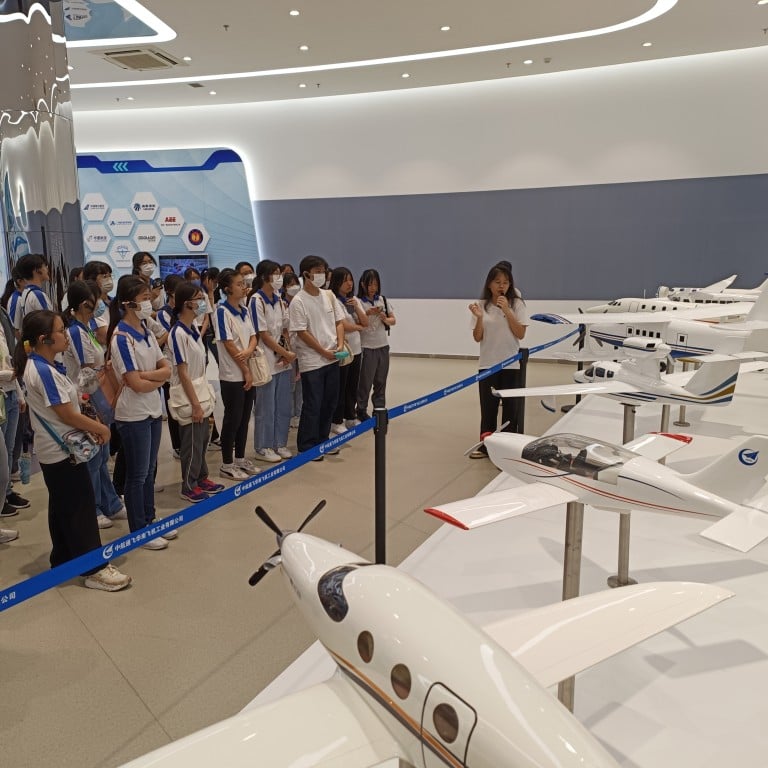
Educational trips to mainland China for Hong Kong secondary school pupils’ new core subject ‘eye-opening’, youngsters say
- One pupil says trip brought her closer to the country and emphasised influence of national development on her daily life
- Education Bureau says it will cut the number of whistle-stop one day tours and increase the amount of longer ones after canvassing opinions
Hong Kong secondary school pupils who joined compulsory mainland study tours for a new core subject of citizenship and social development said the trips were an “eye-opening” experience that brought them closer to the country.
“I previously thought the distance between me and the country was so far. I found out most of the things in my daily life relate to the country’s development,” 17-year-old Yoyo Cheung said on Monday.
“The trip really changed my view about the country’s development and how close it could be to my daily life,” the Form Six pupil at the Chinese Foundation Secondary School said after her trip to the aerospace science education base in Shenzhen.

Cheung was among 43,000 pupils who took study tours as part of the curriculum for the new subject.
About 5,000 teachers also took part in the trips, which ran between April and August, and lasted from one to several days.
The new core subject for senior secondary pupils was introduced in 2021 to replace liberal studies, which was ditched after accusations that the curriculum was radicalising youngsters.
The new syllabus was designed to focus on national security, identity, lawfulness and patriotism.
Yolanda Ko Ching-yan, 17, a Form Six pupil at Shun Tak Fraternal Association Tam Pak Yu College, said her two-day trip was eye-opening, particularly a visit to the Aifeike Aviation Popularisation of Science Education Base in Zhuhai.
“It’s my first time trying to understand the country’s aviation development and I know the country is so strong in this aspect. The things I have seen can’t be found in books, they can only be found on this trip,” she said.
“I now know my motherland is in such advanced development, and I really feel proud of my country and the people making this [aviation accomplishment] happen.”
Hong Kong pupils take last liberal studies exam as they bid farewell to subject
Ko said she would “definitely” go back to the mainland if she were to start a business in the future, adding authorities there offered preferential policies for Hongkongers in some areas.
Hailey Wong Sze-may, 17, a Form Six pupil who took a one-day trip, said the journey had allowed her to see for herself aspects of national development that she had only read of in books.
The three were speaking at an interview arranged by the Education Bureau.
Cheung said her one-day trip was packed and it took a long time to travel from one location to another, and the group did not have enough time to soak up all the details, despite briefings on what they would see before arrival at the next destination.
Hong Kong students will be able to do 1-day trips to mainland China for subject
A total of 22 choices of itinerary were offered to schools in the last academic year.
Eight of them were one-day trips, as schools said it was difficult to find a suitable time for Form Five pupils to go before they moved up to Form Six this year.
Hui Shing-yan, the chief curriculum development officer in the life-wide learning and mainland exchange section of the bureau, said pupils picked up a lot from briefings by tour guides as they travelled from place to place.
But the bureau said it had listened to the views of those involved.
It added the number of one-day visits this school year would be cut from eight to three and overnight trips increased from 14 to 23.

